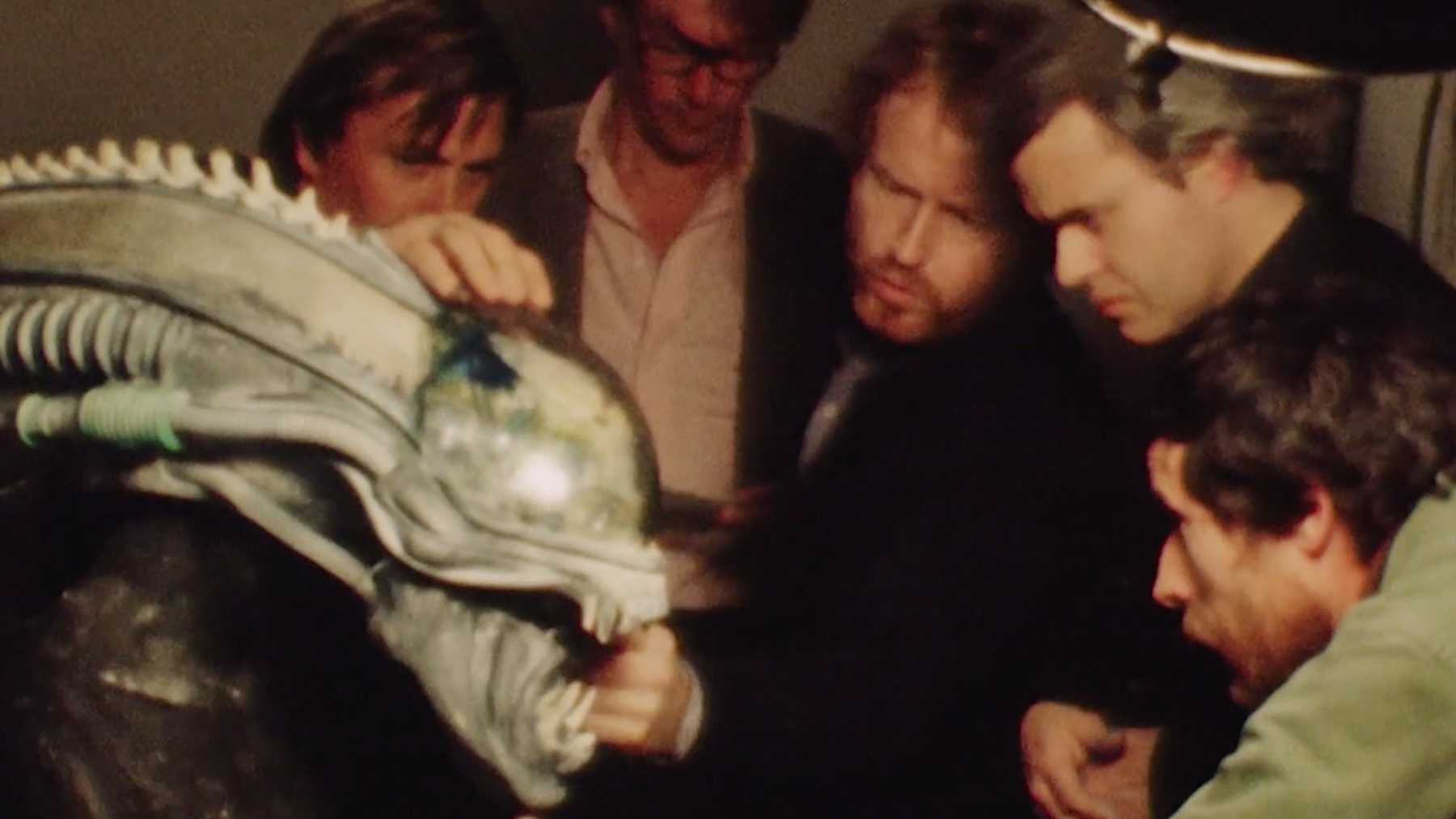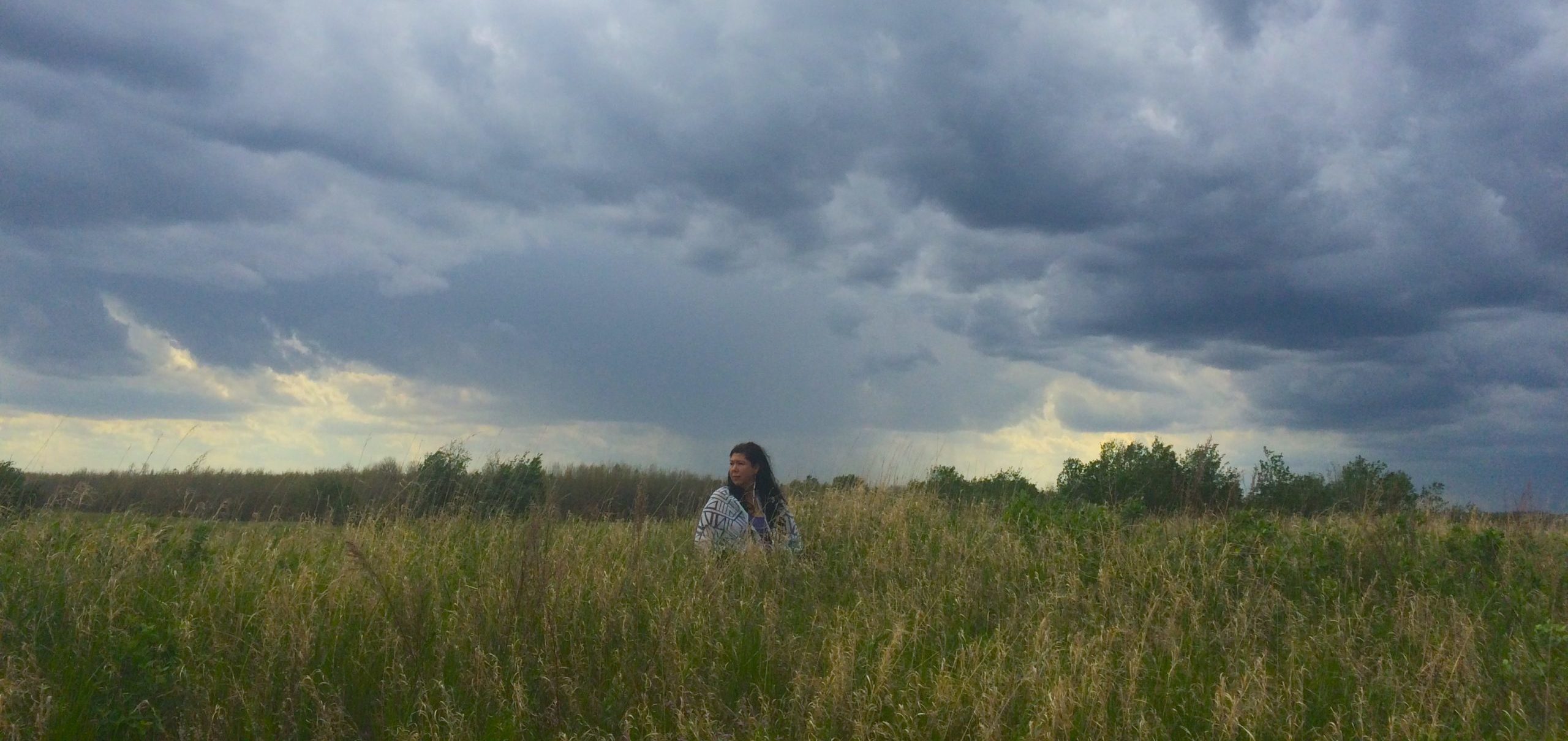Swiss Filmmaker Alexandre Philippe has recently carved out a niche crafting documentaries that deeply dive into classic horror films and the people who made them. His 78/52 focused exclusively on the shower scene from Hitchcock’s Psycho, illustrating that within that montage lay a universe of interpretation. His latest work, Memory – The Origins of Alien, explores Ridley Scott’s 1979 film, uncovering thematic and serendipitous connections that elevate our understanding of the classic as well as provoking viewers to participate in similar hermeneutical gymnastics while engaging with the film. Through broad connections to painting, literature and classic myths Philippe crafts a web of references driven by what he calls a “collective unconsciousness” that willed the project into being made in the late Seventies. (Read more about Memory – The Origins of Alien in our report from Sundance!)
POV spoke to Philippe about his own connection with Scott’s film, how the scope of the project shifted from looking at a single sequence to larger concepts, and how his provocative opening sequence fit into his vision for Memory. —Jason Gorber
POV: Jason Gorber
AP: Alexandre Philippe
This interview has been edited for brevity and clarity
POV: What is your earliest memory of watching Alien?
AP: It’s a bit fuzzy actually. My first memory of Alien was being entranced by the poster. A really good friend of mine had the poster in his room and every time we’d go and visit, we’d look at it. I remember completely dreading the idea of watching the film so it took me a few years until I finally got to watch it.
POV: When you finally saw it, did it live up to the horrors in your own imagination?
AP: Definitely. I was raised watching horror movies. I was already fairly versed in the genre, but it felt unlike anything that I had ever seen. It’s one of those films that I kept revisiting numerous times over my teenage years.
POV: One of the things your film does is actually getting into the psychology of this type of horror, of being drawn towards the darkness. Have you thought more because of this film about your own fascinations?
AP: I’ve always been really interested in the idea of exploring one’s fear. There is no emotion that is more powerful than fear in trying to figure yourself out. The more I dreaded watching a film, the better. Alien was the ultimate example of that for me.
POV: Your film tangentially touches upon what Foucault called a “limit-experience,” the notion of going to the edge of intensity to break the subject from itself. Has this type of exploration of the film enriched your own connection to the darker impulses in yourself?
AP: Oh, completely. In many ways the path that I’m taking through Psycho, Alien and next The Exorcist is not completely of my design. I’m aware that I’m going on this path and not entirely sure of why, but I feel it’s something I have to pursue.
POV: The Psycho project focused on the single scene. It may have easy to have made a similar film about Alien focusing entirely on the chest-burster sequence.
AP: That was definitely the original impulse. It doesn’t work because you can’t approach the chest burster scene the way you approach the Psycho shower scene. If you do, you can end up having a very entertaining behind-the-scenes piece but quickly you realize there’s a lot more there. One thing that got me excited about exploring this film was the idea that Ridley Scott had shown H.R. Geiger Francis Bacon’s Three Studies for Figures of the Crucifixion. You can look at this and say, well, that’s just a little tidbit of trivia. I’m not so sure. If you look at all of the elements that make Alien, and all of the coincidences and all of the extraordinary changes that happened during the making of this film, you have to wonder, was there really something else there? Memory is a film about Alien, but it’s really a film about our collective unconscious.
POV: Memory also showcases how to read a film, helping posit that what makes great art is our ability to engage with it long after its initial and sometimes simplistic introduction.
AP: I would also go one step further in this idea. You can say that what certain filmmakers put on the screen either resonate with us, or they don’t. My view is that there are certain ideas and images that we need to see as a collective, and we need to process and think about them. In a way we summon those stories to life. That’s why this idea of frequency is important to the film. If Dan O’Bannon and H.R. Geiger and Ridley Scott had not been on the frequency of this particular myth, somebody else would have to be. That was a movie that needed to come out at that particular time. It’s a completely esoteric idea but I do believe that.
POV: Can you talk about the opening scene with the dramatic recreation of the Furies, what it means to you, and whether it always made the final cut?
AP: The opening was the first thing that I wrote. There was never a question that it was going to start any other way. I was challenged by Kerry Deignan Roy, our producer at Exhibited Pictures and my partner in crime on those films, but she definitely gets it now. I was also challenged by Chad Herschberger, our wonderful editor, but this was never going to be negotiable. To me, this opening scene encapsulates everything. It introduces a very potent dramatic question but it engages your senses without giving you a narrative. It presents you with this question of what is the connection between the great Furies and the Alien? Documentaries should be cinematic, throwing the audience into a universe and trusting if they’re patient and you give them images that are powerful enough, they’re going to stay with you.
POV: Was there a particular film that actually encouraged or gave you the courage to start this oblique way?
AP: Yes, the opening of 2001: A Space Odyssey. The title tells you that you’re going to watch a space movie, yet Kubrick immediately throws you into this prehistoric world with apes. It creates an immediate question: What’s the connection? When do we get to space? I should pay attention. That’s a 10 minute sequence that only Kubrick can do. Hopefully I can get away with three minutes.
POV: Done badly this would be excruciatingly indulgent.
AP: Of course it’s indulgent. When you have to go to Greece and Italy and do this crazy thing on a spaceship set with three actresses and metal mouthpieces and the blue laser and all of that, it’s definitely going a little overboard for an opening sequence in a documentary! But it’s really about setting up the foundation for the film, about making us think of Alien in a different way. If nothing else, it’s a radical interpretation of a very short segment of the Oresteia by Aeschylus. I remember when we were filming the scene and I was coaching the actresses that in ancient Greek. Mickey Faerch, the lead Fury, is fucking scary as all hell. We had a consultant on set and and I turned to him said, “Just tell me, are we going too far? What would Aeschylus think of this?” He looked at me and he said, well, Aeschylus was a drunk, he would have loved it! [Laughs]
POV: Your film broadly fits into the spectrum of a talking head documentary. It has a bunch of people reflecting upon something and connects to pre-existing EPK [electronic press kit] footage. What else do you do to ensure that the film you’re making embraces its cinematic scope?
AP: Anytime you’re going to ask people to sit in a dark theatre for 90 minutes to watch something, you have a responsibility to deliver an experience that is actually designed for the screen. There are a lot of documentaries out there that are very didactic. You’re probably fine watching them on a small screen or your iPhone or whatever, and that’s what they are. When you make a documentary about film, I feel a certain responsibility to build a visual style that really creates a mood and throws you into that cinematic universe.
POV: Is there a frustration when a person experiences something that you built for cinema on their watch? Are you simply happy that they’re taking in the philosophical or didactic elements of your film, while missing out on some of the craft?
AP: That’s the curse of all filmmakers. This is the culture, the “age of content” that we’re in right now, and we have to accept that. The films that I’m making are about keeping alive an understanding of the craft of the great filmmakers. If we can connect with the general public, they’ll understand that the great movies are works of art and need to be experienced in certain ways. If they watch my doc on an iPhone and that makes them want to go watch Alien on a big screen, then I’ve still done my job.
POV: Would you rather somebody watch Alien on the big screen or not watch it at all? If they come across it on a small screen, are they getting what Alien really represents?
AP: I would still rather that they experience it, unless you’re multitasking and keeping it in the background. The great movies somehow get through to you. I’m not so much of a purist that that you should only watch those films in the way they were intended. You should watch them, anyway. The great ones are so powerful that at some point you’re going to want to watch them on the big screen.
POV: You talk about being a purist, which some ascribe to documentaries themselves. What do you see as the role of documentary in this world where people speak often about fake news and post-truth?
AP: I don’t like the word documentary. I usually don’t like to say I’m a documentarian. I personally prefer to say I make films about film. Tackling something like Alien and the idea of mythology and the collective unconscious is very different than tackling a film which concretely speaks about, say, the issues of climate change. I don’t think I deal with facts in a way that other documentarians deal with facts. I deal with ideas and communicating certain ideas. My films are about making people look at the films that they’re curious about, or that they love, in a different light. Hopefully it makes them want to dig deeper and to keep that fire alive. Is there such a thing as fake news for Alien?
Memory – The Origins of ‘Alien’ screens:
-Thurs, Apr. 25 at 8:45 p.m. at TIFF Lightbox
-Fri, Apr. 26 at 12:15 p.m. at TIFF Lightbox
-Sat, May 4 at 3:45 p.m. at TIFF Lightbox











